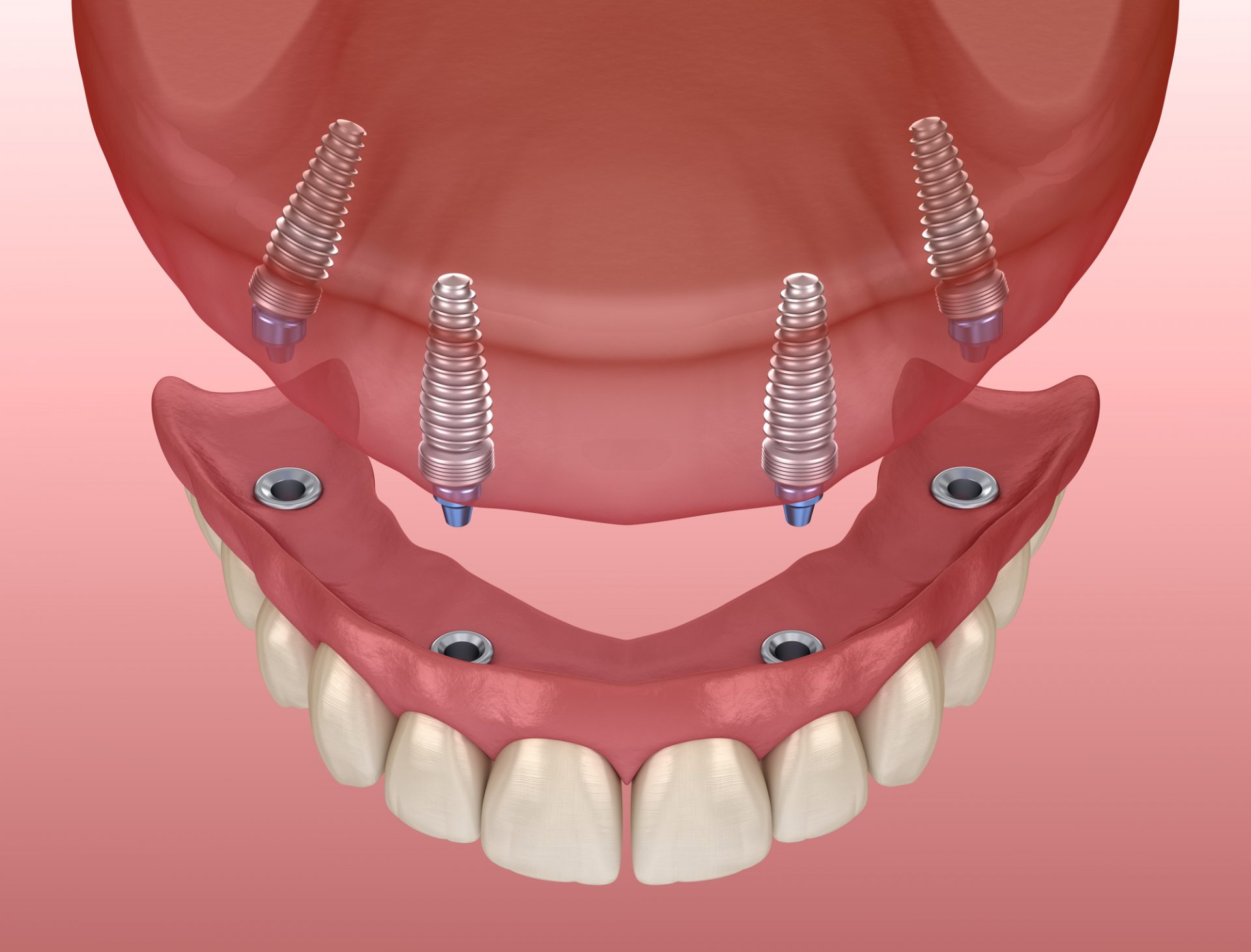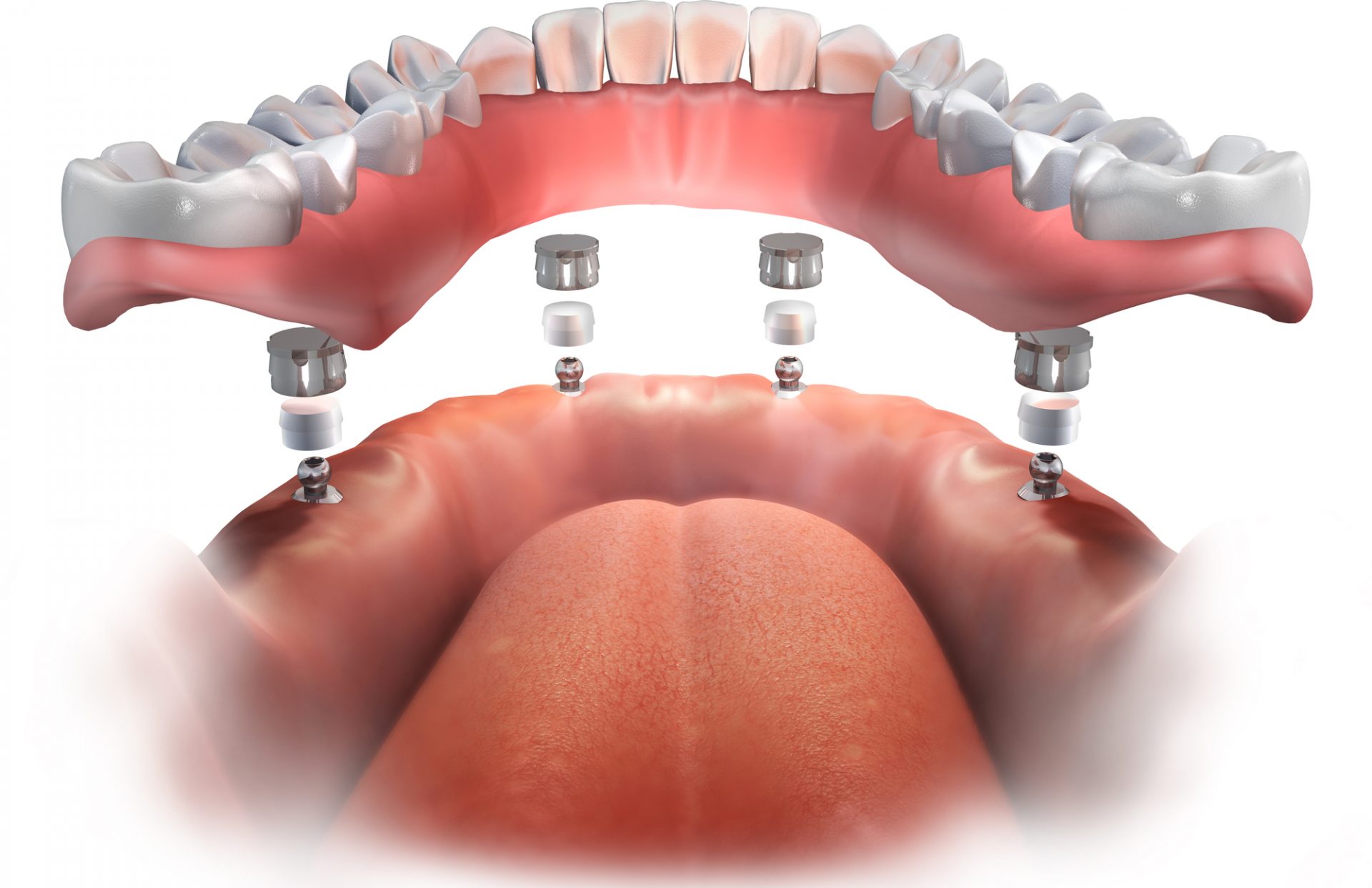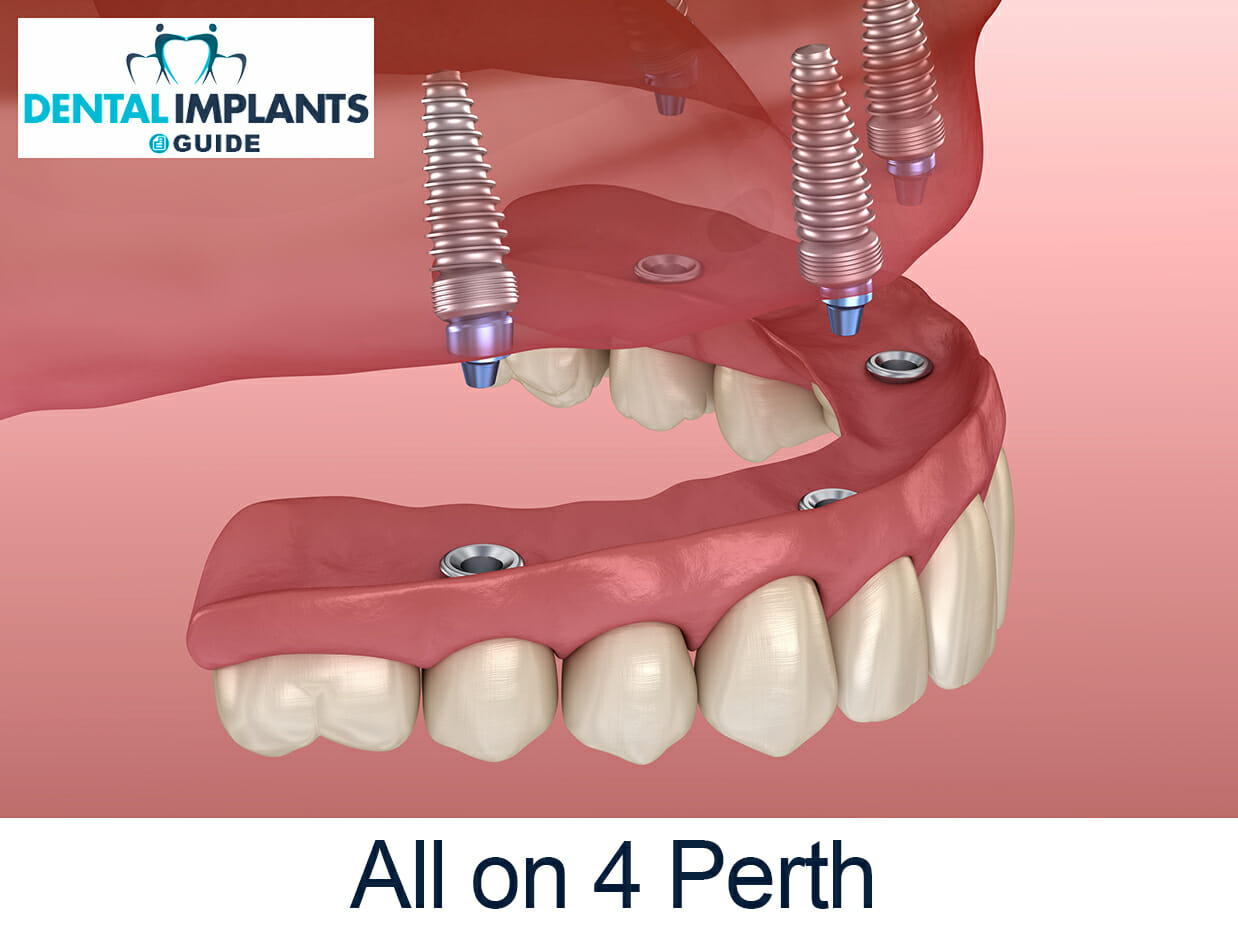All on 4 Dental Implants Perth
If you are looking for the best dentist in Perth for All-on-4 dental implants, we have reviewed My Implant Dentist, Coolamon Dental, and Mindarie Quinns Dental for you below. These dental clinics provide high-quality services and treatment. You can also visit their websites to learn more about their services.
What is all on 4 procedure?
All-on-4 dental implants are a whole set of implants that can replace your complete upper or lower jaw. They serve as a more permanent and natural-looking replacement for dentures. Traditionally, each dental implant has a single tiny titanium screw inserted into the gums by a surgeon.
What are the benefits of All-on-4?
This operation avoids future bone loss in the jaw, as well as providing a quick and permanent answer to your dental problems. You may keep your face shape and enhance your dental health by keeping the present bone. Improving your smile may have a significant influence on your self-esteem and self-assurance.
We want All on 4 in Perth patients to be able to grin bigger and brighter without having to worry about their new teeth causing problems. Unlike dentures and other non-permanent options, this treatment option appeals to those who don’t want to manually remove their set every night or worry about it sliding out at an inconvenient moment.

How much does all on 4 dentures cost?
| Procedure | Average Cost |
|---|---|
| All-on-4 or All-on-6 implant placement | It starts from $12,500 Per arch |
| Removable or Fixed Acrylic permanent restoration | It starts from $4,750 per arch |
| Removable or fixed porcelain or permanent zirconia restoration | It starts from $12,250 per arch |
All On 4 Dental Implant Options
There are two types available of Implant Supported Dentures today.
- Bar Retained – We can employ a thin metal bar that follows the curvature of the jaw using the Bar Retained option. The Bar is then attached to the implants. After all of the material is in place, attachments or clips on the denture are used to secure the two sections together.
- Ball Retained – The technique used to connect the denture is the most significant distinction between the Bar Retained and Ball Retained options. A ball-shaped attachment is affixed to the implants, as the name implies. With a socket-like characteristic, they are then fixed and fastened on the denture implants. Many All on 4 Perth WA 6000 clients consider it to be the most popular and favoured alternative. It would help if you spoke with one of our skilled dentists about your options for supported dentures so that you may make the best selection possible.
The following factors influence the success rate of All on 4 procedure:
- Bone quality
- Guided surgery
- Implant length and diameter
- Prosthetic material
- Abutment type and prosthetic screw tightness

Implant Dentures Vs. Dentures
The prospect of dental implants may be an emotional and long-term procedure since the chance of jaw surgery might be intimidating. This is why we give you a Complimentary Consultation with one of our restorative dentists to assist you in making the proper selection for you.
Advantages and Disadvantages of All-on-Four Perth
Advantages
Because the implants are positioned near the front of the mouth rather than uniformly across the arch, this all-on-four therapy maximises the usage of the jawbone in an area where it is more robust and thicker.
People who were advised they needed a bone transplant before implant surgery may benefit from this treatment.
The implants are simple to clean and keep sanitary.
It is possible to have the feel and appearance of healthy, youthful teeth that are robust and stable with all-on-four implants.
Disadvantages
Because not everyone is a good candidate for all-on-four implants, initial consultation with Perth’s dental implant specialist is crucial.
Because not every dentist has the abilities to do this difficult restoration, it’s critical to select someone who has the necessary qualifications and training.
How Long Do All on 4 Dental Implants last?
Because all-on-4 implants are a more recent advancement in dental implants, there isn’t a lot of data to show how long they should last. All-on-4 implants, on the other hand, use the same technology as traditional implants.
Titanium screws are placed in the jaw during treatment and designed to fuse with the patient’s natural tissues through a process known as osseointegration. Only four implants are used with All-on-4 implants, and the two back implants are angled to take advantage of the remaining bone tissue.
All-on-4 implants should have a similar lifespan to traditional implants as long as they fuse with the patient’s bone during the healing process. According to most dental professionals, patients can expect All-on-4 implants to last 20 to 25 years at the least, with the potential to last the rest of their lives.
How to Make Them Last a Longer Time
The same techniques that extend the life of implant-supported crowns and traditional dentures will work to keep your All-on-4 implants from failing. If the dentures break, replacing the prosthesis is relatively simple. Dental implant failures are more difficult to recover from, so follow these guidelines to avoid an anchor break or jaw bone rejection.
Choose the best dentist: A dentist specialising in dental implants, particularly the new All-on-4 procedure, can help you avoid almost all of the common causes of implant rejection.
Concentrate on the maintenance of your teeth: The better you care for your dentures and your overall oral health, the less likely you are to experience damage or rejection. Dentures or implants do not negate the need for daily brushing and rinsing. Taking care of your remaining teeth while considering an All-on-4 procedure helps to maintain healthy jaw bone tissue, which improves your chances of a successful implant procedure.
Improve your overall health: Issues with your circulation, immune system, or healing rate will have an impact on your implants. The majority of patients seeking All-on-4 implants have serious dental issues that make eating difficult. Soft and processed foods may relieve your oral pain, but they can also cause a loss of jaw’s bone density, which can make implant surgery more difficult. Taking the time to improve your diet, address blood sugar or circulation issues, and improve your overall health will pay off by lowering your chances of a dental implant failure.
Choose a durable denture material: Stay away from plastic and acrylic if you want your dentures to last as long as possible. Zirconia and porcelain are much more durable, especially if you’re keeping your natural teeth on the upper or lower jaw. Natural teeth are extremely hard on denture and bridge materials made of plastic or acrylic; however, Zirconia and porcelain can withstand their abrasive forces without damaging the enamel.
Stop smoking and abstain from consuming alcohol: Both smoking and consuming alcoholic beverages cause dry mouth. Strong gums and quick healing after implant surgery require a healthy supply of saliva. Even years after you’ve healed, picking up a smoking or drinking habit will stain your dentures and may cause implant rejection.
Change your diet: For the first three months after surgery, you’ll need to eat only soft foods so the implants can properly bond with the bone tissue in your jaw. After that, avoid eating hard or sticky foods that could push or pull on the implants, causing them to break. However, don’t limit yourself to soft foods because chewing stimulates the jaws’ bone tissue, which helps keep it from shrinking around the implant posts. A balanced diet of vegetables, fruits, shelled nuts, and lean meats will provide you with the nutrients you need for good overall health, as well as moderate chewing forces that will stimulate your bones.
Treat teeth grinding first: Because grinding your teeth can wear away natural tooth material, it’s no surprise that it can also harm denture materials. As you grind, the forces exerted on the implants increase the likelihood of a break or failure. If you can’t stop grinding your teeth at night, have your dentist fit you for a custom night guard that fits your dentures’ size and shape.
Your All-on-4 implants and dentures will last at least a decade, if not much longer if you take good care of them.
Proper Care For Your Implants
The new teeth are frequently made of several different materials. All-porcelain materials are used, which gives them a lifelike and beautiful appearance. If you want a more cost-effective option, you can use high-quality, medical-grade acrylic. Your teeth will be created in a lab by highly skilled technicians. Your new teeth will be strong and long-lasting thanks to the expertise of the professionals.
All-on-4 implants are designed to last a long time. To ensure that your new teeth last a long time, you should follow your dentist’s instructions on how to care for them. Speak with your dentist right away to see if you’re a good candidate for All-on-4 implants. Make certain to inquire about the various options available to you.
How to Clean All on Four Dental Implants?
Because oral hygiene is so important in determining how long all-on-four implants last, let’s take a look at how you can keep All on four implants clean. Brushing twice a day and carefully flossing around the implants, just as you would your natural teeth, will help remove plaque and food particles that can accumulate on them. In addition, you should have regular dental checkups to avoid problems that could shorten the life of your all-on-four dental implants.
How Long Is the Recovery Time for All-on-4 Implants?
The recovery time for All-on-4 implants is relatively short for the majority of patients. The recovery time should only be a few days if no bone grafting is required. Because the procedure entails sedation, you will need someone to drive you home after the implants are placed. Within four to five hours, the sedation should wear off. After the procedure, you’ll need to stick to a liquid and soft food diet for a few days, but you should be able to return to work in two to three days.
If bone grafting is necessary, the recovery and healing time will be most likely be three weeks. In such cases, the implants will also take about six months to integrate into the bone.
Is the All-on-4 Surgery Painful?
The discomfort experienced following the All-on-4 procedure ranges from mild to moderate. Following the surgery, a patient will need to take over-the-counter anti-inflammatory medications 3-4 times per day for three to five days to stay ahead of the pain.
For “break-through” pain, stronger pain medicine may be required on an as-needed basis. When the patient reaches postoperative day four, the pain level should be reduced significantly, and the swelling should be significantly reduced.
You can choose between different anesthesia options if you undergo the All-on-4 dental procedure at the facility of My Implant Dentist. We always ensure that our patients have a pain-free and anxiety-free surgery experience.
Is All-on-4 Removable?
All-on-4 dental implants are fixed to the jaw bone and are not removable. As a result, the All-on-4 procedure and prosthesis are regarded as “permanent” and non-removable. The dental bridge attached to the implants with special screws is the only part that can be removed. During the cleaning appointment, only your dentist will be able to remove the dental bridge.
Don’t hesitate to contact Mindarie Quinns Dental for additional information on the teeth in a day procedure. They can go over the benefits of fixed dentures versus removable dentures in greater detail or set up a free consultation.
Do All-on-4 implants Have a Natural Feel?
All-on-4 dental implants are the most natural-looking option available.
All-on-4 dental implants and bridges can often produce a more attractive smile than natural teeth in terms of aesthetics or how they appear.
All-on-4 dental implants are also extremely similar to natural teeth in terms of functionality and chewing efficiency. Some patients have even been known to break dental All-on-4 bridges by chewing on things they aren’t supposed to chew (crushing ice cubes or even cracking walnuts with their new teeth). This should be avoided at all costs.
What If Your Bone is Insufficient For All-on-4 Dental Implants?
Patients with severe bone loss who are unable to have traditional All-on-4 dental implants placed still have some options:
- Zygomatic or cheekbone implants support the dental bridge.
- Bone grafting techniques, such as the sinus lift procedure, onlay bone grafting, are used to increase the volume of the existing bone.
- Fewer implants are placed into the existing bone to support a denture. Even though implant-supported dentures are a last resort, they are still more functional and better tolerated by patients than traditional dentures.
If you’re concerned that you don’t have enough bone for All-on-4 dental implants, talk to Coolamon Dental about your options.
After All-on-4 Surgery, Reassess Your Diet
When recovering from ALL-ON-4 surgery, the best thing you can do to improve your nutritional status is to eat whole foods. Consume “whole” or “non-processed” foods. A whole food would be an orange and boiled egg, for example. It’s important to understand that orange juice from concentrate is a processed version of that food. A baked potato is a whole food, whereas a fried french fry is more processed and less healthy. Onions, for example, are preferable to onion rings.
Get the majority of your nutrition from these whole foods for the first 8-12 weeks after surgery, which is a healthy way to eat every day, not just after surgery.
Processed foods contain significantly more fat, sugar, salt, and chemical additives than whole foods but far less fibre and vitamins. Focusing on the grocery store’s outside aisles is one way to stick to more nutritious, less-processed foods. The produce, butcher/fish, dairy, and bread sections of most grocery stores have unprocessed foods on the outermost areas of the store.
If you do your shopping in those areas, you are more likely to choose healthier foods high in fibre, which is an essential nutrient to include in your post-surgery diet.
Why Is a High-Fiber Diet Necessary After Surgery?
While recovering from surgery and taking antibiotics, it is critical to include fibre in your diet. Fibre not only makes high-fibre foods healthier than low-fibre foods, but it also helps to prevent constipation, which is a side effect of All-on-4 Dental Implants surgery. Constipation is more than just an inconvenience after surgery when taking prescribed medications; it can cause pain and increase the risk of necessary nutrients not reaching the bloodstream, complicating the recovery process.
Rather than taking a fibre supplement, consider increasing your intake of high-fibre foods and obtaining fibre more naturally. Supplementing isn’t a bad idea, but fibre from food prevents constipation much better when combined with plenty of water.
Will I Experience Trouble in Eating After ALL-ON-4 Surgery?
Due to a lack of appetite, it can be difficult to eat after surgery. This usually passes within a few days of surgery, but it’s important to keep eating nutritious foods during this time. A decrease in appetite can be caused by constipation. If this is the case, talk to your surgeon about other options for constipation relief before turning to over-the-counter medications.
While most Australians could benefit from losing a few pounds, skipping meals after surgery is not the way to go about it. If you don’t eat enough after surgery, your healing will be slowed, and your incision will take longer to close. Protein and other nutrients are required by your body to build healthy new tissue and heal tissue that has been injured by surgery.
If you’re not constipated but still have trouble eating, consider calorie-dense foods like a smoothie, which can include dairy, fruit, and even protein powder if needed. If you’re having trouble getting enough calories after surgery, try to eat calorie-dense foods as much as possible. This entails consuming foods that have a higher calorie content per bite than others. A cup of green salad, for example, has a low-calorie content per cup, whereas an avocado has a high-calorie content per cup.
If you’re having trouble getting enough calories, try eliminating low-calorie and calorie-free foods from your diet until you’re able to eat enough. Click here to learn more about all-on-4 implants today!
What are the problems with all on 4 dental implants?
Are all on 4 comfortable?
Are Perth's all-on-4 implants permanent?
How painful is all on 4 dental implants?
How many teeth do all on four have?
Which are better, all-on-4 or all-on-6 dental implants?
How do you maintain all-on-4 dental implants?
Back to top: All on 4 Perth


 dental implants full mouth
dental implants full mouth
